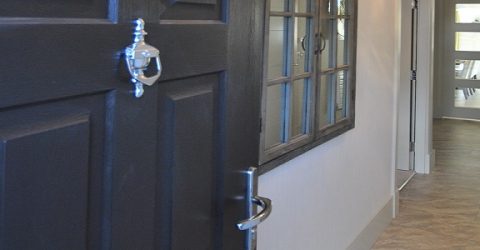How vulnerable to broadband outages is smart security tech?
Many people will be receiving smart security tech for Christmas, but broadband outages can be a significant problem

The increasing convergence of internet connectivity with formerly passive offline devices has kick-started a minor revolution in home electronics.
Where devices once operated in isolation and created modest data siloes, they now share information wirelessly through either Bluetooth or WiFi.
This has led to an explosion in smart security technologies, from video doorbells and motion-activated indoor cameras to smart locks and WiFi doorhandles.
And in theory, that’s great.
But in practice, a broadband outage either at home or from your service provider could have potentially damaging implications for your security – and even your insurance protection.
And when even Google’s online services can be suddenly and unexpectedly forced offline (as they were in mid-December), can you truly rely on any internet-based service?
Not as smart as they’re painted
Smart security tech has been engineered to withstand hacking, while the companies hosting it have also engineered their hardware to resist concerted attempts at bringing them offline.
Amazon Web Services hosts a great deal of IoT tech. They’ve previously survived a DDoS attack which flung 4.3Tbps of data at their servers in an attempt to crash them.
Yet despite this achievement, AWS still experienced a mass outage at the end of November, forcing everything from Ring doorbells to Roomba cleaners offline for much of the day.
That’s inconvenient if you miss a parcel, but it’s downright dangerous if someone breaks into your house and isn’t captured on the security systems you’ve informed your insurers about.
There is no clear answer as to whether any subsequent claim might be affected – you’d hope not, but then your premium might have been reduced because of this technology.
Such uncertainty is perhaps to be expected, since relatively little evidence is available about web-enabled smart security tech’s resilience to outages and attacks.
Technology experts have previously discussed how hackers could intercept wireless signals from outside your home, jamming WiFi broadcasts to deactivate alarms or sensors.
In an ironic twist, security devices without effective firewalls could themselves be compromised and used to grant hackers access to the WiFi networks they transmit across.
What can I do to stay safe?
While nobody can legislate against mass systems failures or a truly determined cat-burglar, these steps should help to minimise any risk of compromised security tech:
- Choose your hardware with care. Check who a particular service is hosted with, and search for evidence of past outages that might indicate recurring connection issues.
- Just as antivirus software protects a PC, consider solutions like Hedgehog’s cybersecurity suite, which enhances the security of WiFi networks and every device connected to it.
- Improve your router security. Don’t just change the WiFi password. Change the router’s own security password too, as it’s another vulnerability hackers may seek to exploit.
- Look for devices which can automatically switch from WiFi to cellular connectivity, keeping them online in the event of a WiFi outage.
- Don’t install and rely on smart security unless your broadband is dependable. If it regularly goes down, analogue solutions may be safer until you switch ISP.






